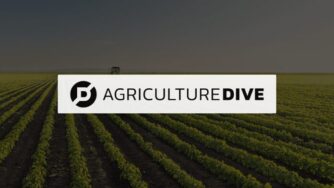While it’s hard to equate green acres with negative environmental impacts, the reality is that the agricultural industry is a major contributor to climate change. Agriculture is responsible for approximately 11% of greenhouse gas (GHG) emissions in the U.S, and the agriculture, forestry, and other land use (AFOLU) sector overall needs to cut emissions by two-thirds by midcentury to meet climate goals established in the Paris Agreement. Ensuring that the nearly 8 billion people around the world have access to sufficient quality food and nutrition further complicates addressing the impacts of agriculture on the environment. Simultaneously, the weather impacts of climate change are making it increasingly difficult for farmers and ag-related businesses to depend on reliable production, creating economic insecurity and threatening livelihoods and businesses.
How to address the interwoven challenges of cutting emissions, increasing yields and quality, and protecting business viability? Several Flagship Pioneering-founded companies are advancing science, technologies, and market opportunities that provide a path forward.
CIBO Technologies
Carbon credits are one incentive for adopting better practices, but there is also a growing consumer base simply willing to pay more for sustainable products. To help ag businesses and businesses with ag in their supply chains access this market base, CIBO offers remote and on-farm verification of regenerative practices at scale. The company also provides crop modeling and simulation, helping farmers understand how shifting to new practices will impact their land, yield, and carbon sequestration. The company’s proprietary SALUS (system approach for land use sustainability) model creates a digital twin of the field, showing how changes in practices would affect crop growth and yield, soil organic matter, nitrogen dynamics, and heat balance.



